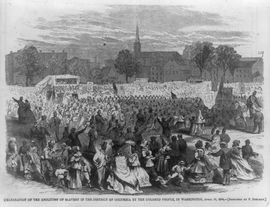
On April 3, 1862, the Senate passed the District of Columbia Compensated Emancipation Act, sponsored by Senator Henry Wilson of Massachusetts. Signed into law on April 16, this bill freed all enslaved persons living within the boundaries of the federal district. [Library of Congress]
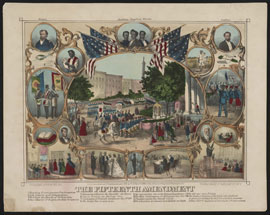
William Stewart of Nevada, a member of the Senate Judiciary Committee, guided the Fifteenth Amendment through the Senate. Ratified February 3, 1870, the amendment prohibited states from disenfranchising voters 'on account of race, color, or previous condition of servitude.' [Library of Congress]
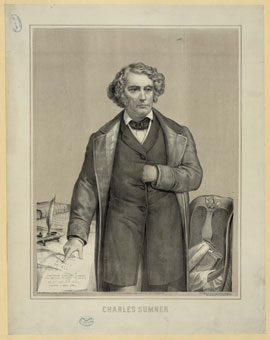
Massachusetts senator Charles Sumner authored the Civil Rights Act of 1875. ”Very few measures of equal importance have ever been presented,” he proclaimed, predicting that the act would be the greatest achievement of Reconstruction. [Library of Congress]
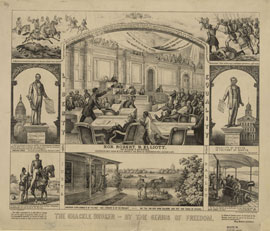
Passage of the Civil Rights Act of 1875 is commemorated in this print, which features South Carolina Representative Robert B. Elliot, as well as Massachusetts senator Charles Sumner, the author of the act. The bill became law on March 1, 1875. [Library of Congress]

A weary senator rests on a cot in the Old Senate Chamber during a lengthy filibuster. Throughout the first half of the 20th century, senators opposed to civil rights and anti-lynching legislation successfully blocked such measures, often through use of the filibuster. [U.S. Senate Historical Office]
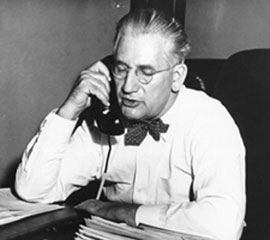
In 1957, Democratic senator Paul Douglas of Illinois helped to maneuver the civil rights bill directly onto the Senate calender, thereby avoiding the Judiciary Committee and its powerful chairman, James Eastland of Mississippi, a long-time opponent of civil rights legislation. After 24 days of debate, the Senate approved a scaled-down version of the bill. [U.S. Senate Historical Office]


